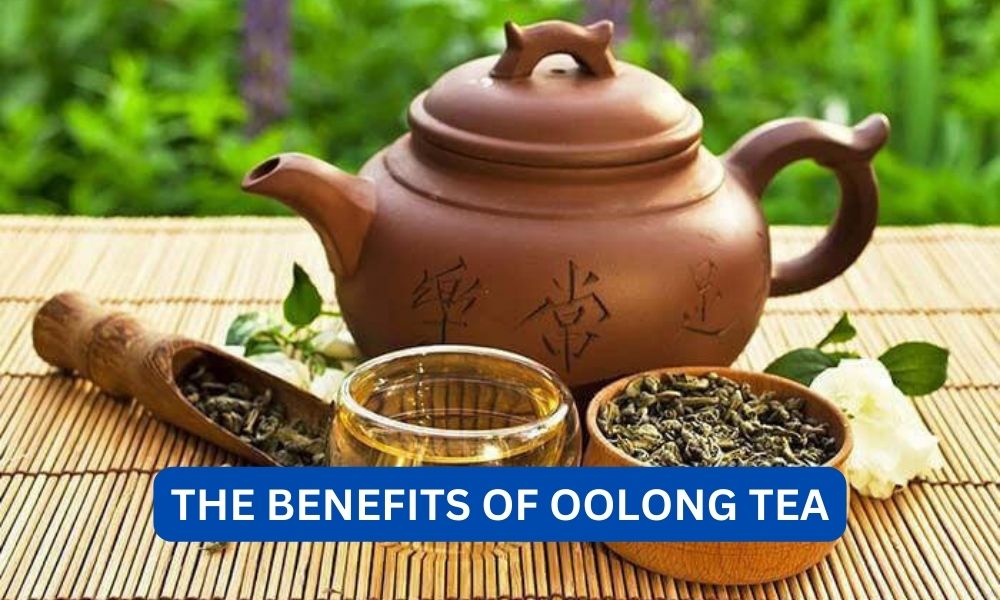Oolong tea, also known as wulong tea, is a traditional Chinese tea that has been enjoyed for centuries. Its name comes from the Chinese term “wu long,” which translates to “black dragon.” Legend has it that the tea was named after a tea farmer who discovered the unique flavor and aroma of oolong tea when a black dragon appeared in his tea garden. Today, oolong tea is not only popular in China but also around the world, with its consumption increasing in recent years due to its numerous health benefits.
The history of oolong tea can be traced back to the Ming Dynasty (1368-1644), where it was first produced in the Wuyi Mountains of Fujian Province. The unique climate and soil of this region, combined with the skillful techniques of the tea farmers, resulted in the production of high-quality oolong tea. During the Qing Dynasty (1644-1912), oolong tea became a popular tribute tea, and its production spread to other regions of China.
In the 19th century, oolong tea gained popularity in Europe and America, thanks to the efforts of the British and Dutch East India Companies. Today, oolong tea is produced in various regions of China, including Fujian, Guangdong, and Taiwan, with each region producing its unique variety of oolong tea.
Read:What are the benefits of eating pomegranate seedsContents
The Production Process of Oolong Tea
Oolong tea is made from the leaves of the Camellia sinensis plant, the same plant used to make black and green tea. However, what sets oolong tea apart is its unique production process, which involves partial oxidation of the tea leaves. This process gives oolong tea its distinct flavor and aroma, making it a favorite among tea connoisseurs.
The production process of oolong tea begins with plucking the tea leaves, which are then withered under the sun to remove excess moisture. The leaves are then shaken or tossed in bamboo baskets to bruise the edges, which initiates the oxidation process. The level of oxidation is carefully controlled by the tea master, who determines when to stop the process by heating the leaves in a hot pan or oven. This step is crucial as it determines the final flavor and aroma of the tea.
After the oxidation process, the leaves are rolled and shaped into long, curly strands, which are then dried to stop any further oxidation. The final step involves roasting the leaves to enhance their flavor and aroma. The entire production process of oolong tea is labor-intensive and requires skill and expertise, making it a highly valued and sought-after tea.
Read:What are the benefits of calf raises?The Health Benefits of Oolong Tea
Oolong tea is not only a delicious and refreshing beverage but also offers numerous health benefits. Its unique production process and high levels of antioxidants make it a popular choice among health-conscious individuals. Here are some of the benefits of oolong tea:
1. Boosts Metabolism and Aids in Weight Loss
Oolong tea is known for its ability to boost metabolism and aid in weight loss. Studies have shown that the polyphenols in oolong tea can increase the body’s metabolism, leading to increased fat burning. Additionally, oolong tea contains caffeine, which can also help in weight loss by increasing energy expenditure and suppressing appetite.
A study conducted in 2009 found that participants who consumed oolong tea for six weeks experienced a significant decrease in body fat and body weight compared to those who consumed water. Another study in 2014 showed that oolong tea can help reduce abdominal fat and improve body composition in overweight and obese individuals.
2. Promotes Heart Health
Oolong tea is rich in antioxidants, including catechins and theaflavins, which have been linked to improved heart health. These antioxidants can help reduce the risk of heart disease by preventing the oxidation of LDL cholesterol, also known as “bad” cholesterol. Oolong tea has also been found to lower blood pressure and improve blood flow, further promoting heart health.
Read:Which hygiene practice has both social and health benefits?A study conducted in Japan found that individuals who consumed oolong tea daily had a lower risk of developing heart disease compared to those who did not consume tea. Another study in China showed that regular consumption of oolong tea was associated with a lower risk of stroke.
3. Improves Mental Alertness and Focus
Oolong tea contains caffeine, which is known for its ability to improve mental alertness and focus. However, unlike coffee, oolong tea also contains theanine, an amino acid that has a calming effect on the brain. The combination of caffeine and theanine in oolong tea can help improve cognitive function, including memory, attention, and reaction time.
A study conducted in 2017 found that participants who consumed oolong tea had improved attention and alertness compared to those who consumed a placebo. Another study in 2018 showed that oolong tea can help improve cognitive function in individuals with mild cognitive impairment.
4. Strengthens the Immune System
Oolong tea is rich in antioxidants, which can help strengthen the immune system and protect the body against various diseases and infections. The antioxidants in oolong tea can help neutralize free radicals, which are harmful molecules that can damage cells and lead to chronic diseases.
A study conducted in 2004 found that oolong tea can help boost the immune system by increasing the production of immune cells. Another study in 2016 showed that oolong tea can help prevent the common cold and flu by enhancing the body’s immune response.
5. Promotes Healthy Skin
The antioxidants in oolong tea can also benefit the skin by protecting it against damage from UV radiation and pollution. These antioxidants can help prevent premature aging and reduce the appearance of wrinkles and fine lines. Oolong tea also contains polyphenols, which have anti-inflammatory properties and can help improve skin conditions such as eczema and psoriasis.
A study conducted in 2001 found that oolong tea can help improve skin health by reducing the effects of UV radiation. Another study in 2009 showed that oolong tea can help improve skin conditions in individuals with atopic dermatitis.
How to Enjoy Oolong Tea
Oolong tea can be enjoyed hot or cold, and its flavor can vary depending on the region and production process. Here are some tips on how to enjoy oolong tea:
- Choose high-quality oolong tea from reputable sources to ensure its authenticity and flavor.
- Steep the tea leaves in hot water for 2-3 minutes for a light and delicate flavor or 5-6 minutes for a stronger flavor.
- For a cold brew, steep the tea leaves in cold water for 6-8 hours in the refrigerator.
- Experiment with different varieties of oolong tea, such as Tie Guan Yin, Da Hong Pao, and Oriental Beauty, to discover your favorite flavor.
- Add a slice of lemon or a dash of honey to enhance the flavor of oolong tea.
Conclusion:
Oolong tea is not only a delicious and refreshing beverage but also offers numerous health benefits. Its unique production process and high levels of antioxidants make it a popular choice among tea lovers. From boosting metabolism and promoting heart health to improving mental alertness and promoting healthy skin, oolong tea has something to offer for everyone. So, the next time you’re looking for a healthy and flavorful beverage, consider trying oolong tea.









